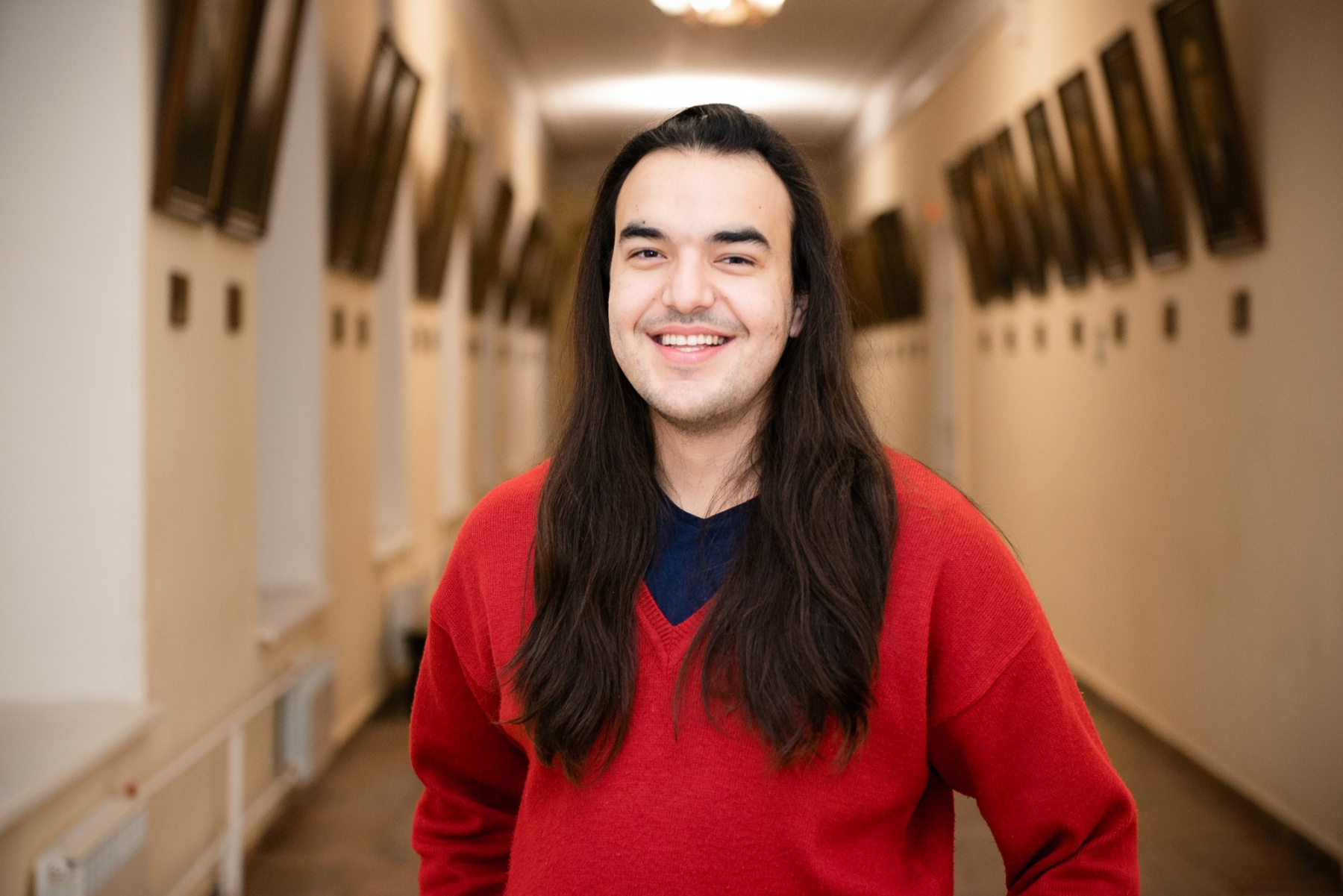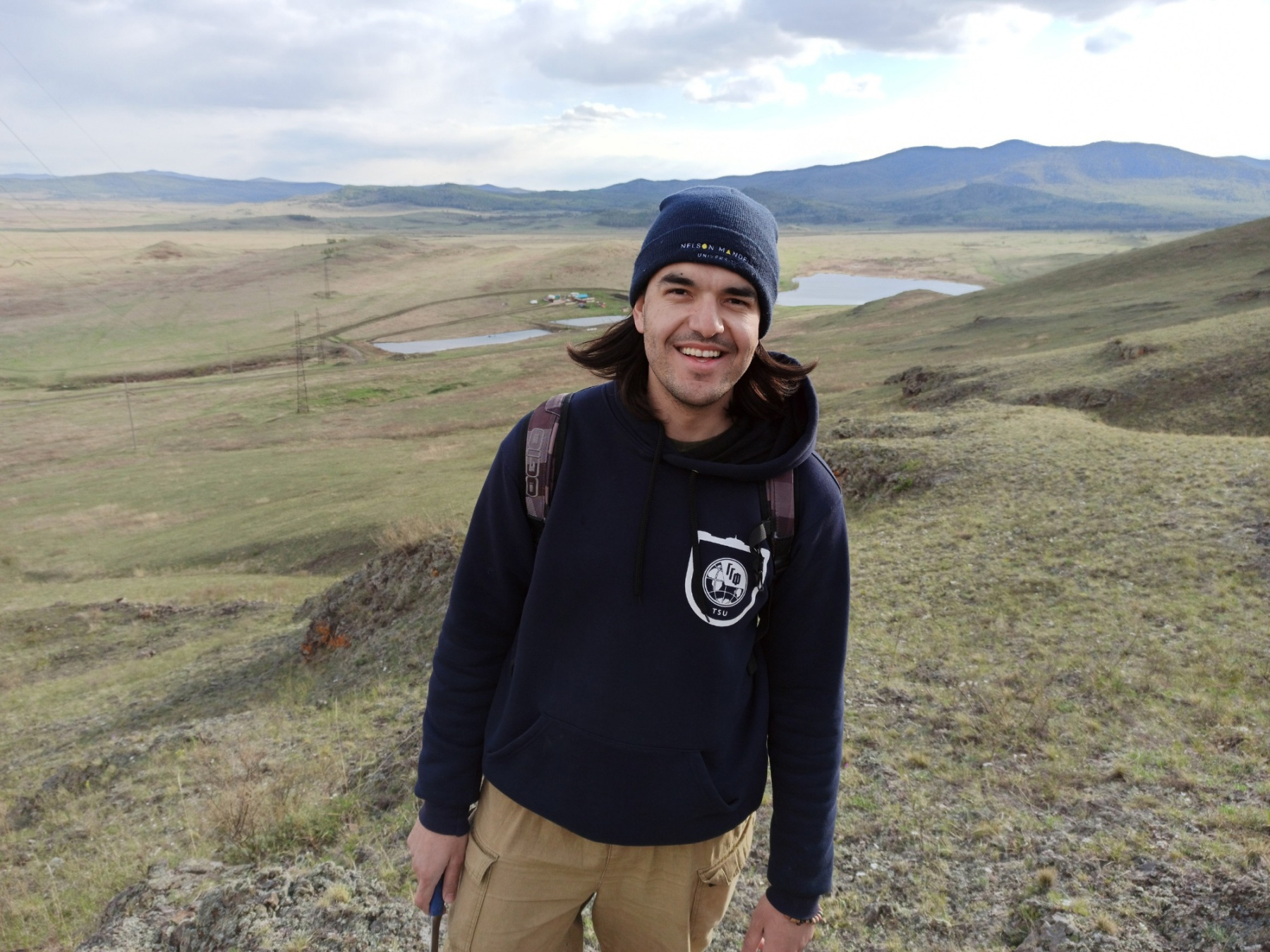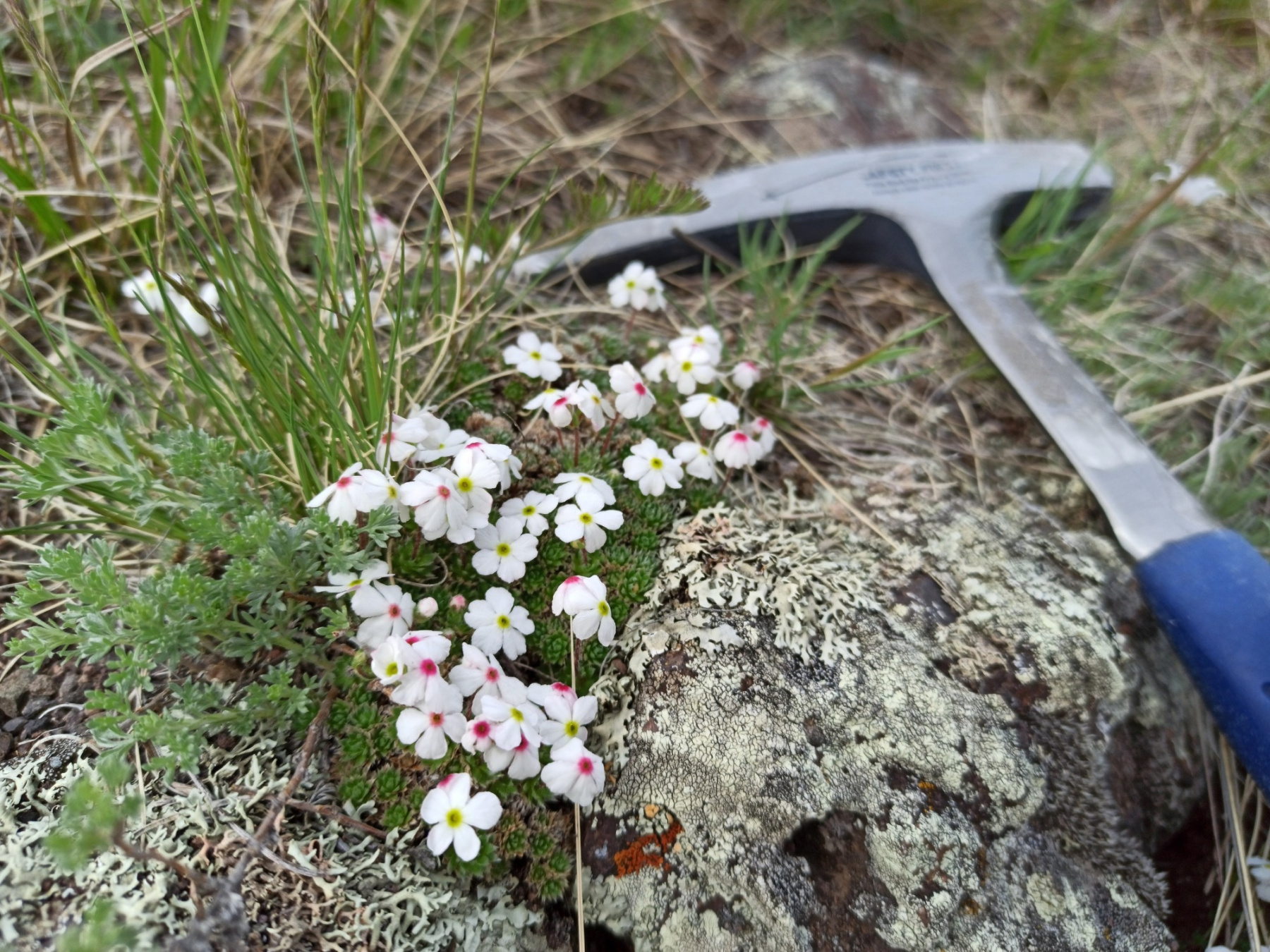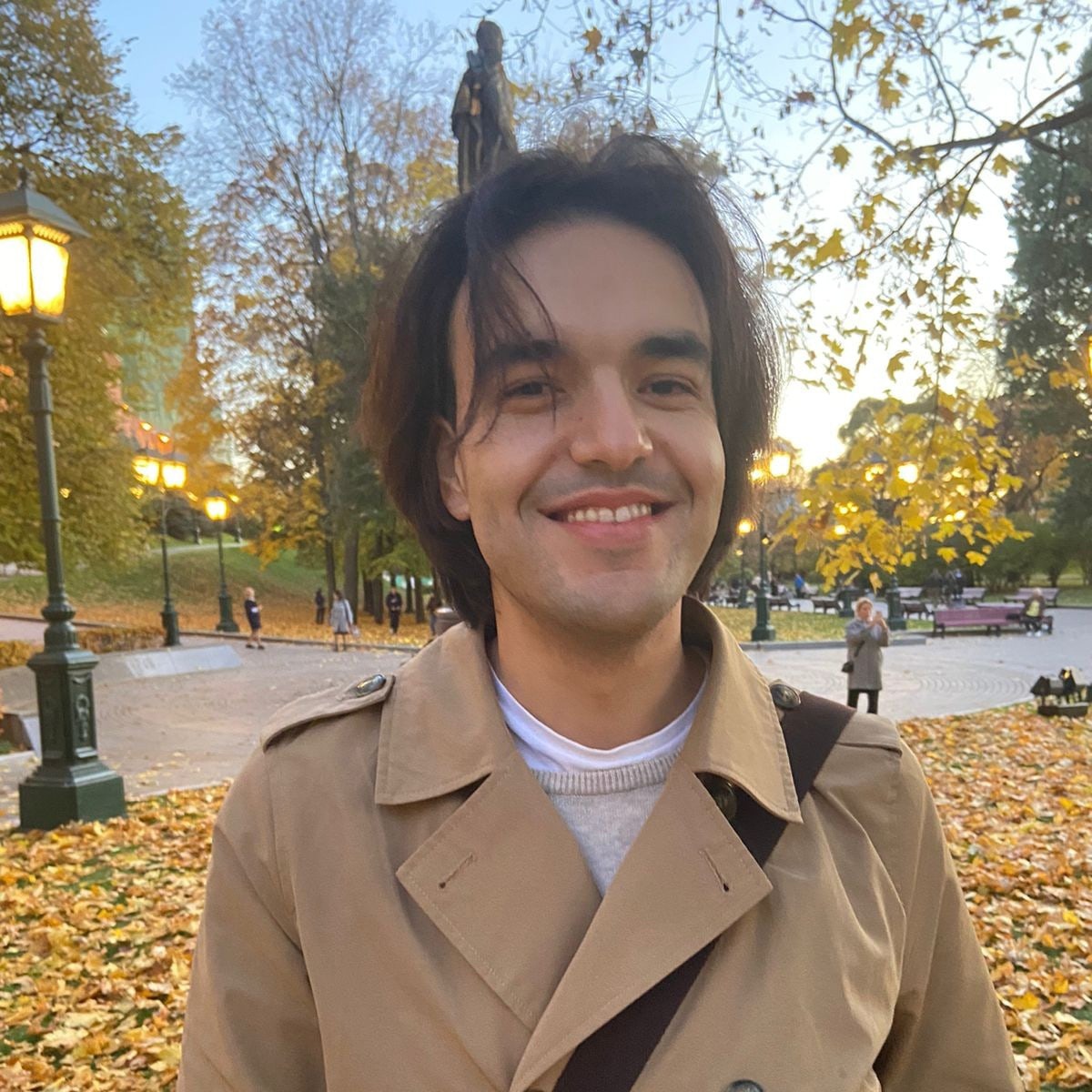It was eight years ago that Carlos Braga first arrived in Tomsk. It happened by chance. His friend was going to a language summer school at some TSU in Russia and invited him. But ten days in Siberia impressed Carlos so much that two years later he returned to major in geology at Tomsk State University. Here’s why a Faculty of Geology graduate and now a master’s student at Carleton University thinks his bachelor’s degree training is very solid and wants to return to Tomsk.
“I was born in Belu Orizonti, Brazil, and spent my first 23 years there. After school, I studied geography. Didn’t like it! Then physics. Didn't like it either. And right when I listlessly did physics at the Federal University of Minas Gerais, my childhood friend suggested I go with him to Siberia, to a Russian language summer school at TSU. And I go: “Well, Siberia sounds interesting!” But I still can’t believe how easy it was...
We came to Tomsk in 2015. The course was ten days. We watched movies in Russian and were shown around interesting spots, like the neolithic rock art museum Tomskaya Pisanitsa. I recorded audio from my first classes and thought: “Geez, what a beautiful language!” The Axe Festival was cool, too. When we were chatting with people there (well, not so much chatting but gesturing), everyone was so surprised: “Are you from Brazil? Wow, cool, Pele, Maracana, soccer!” People were so warm!
When I got back to Brazil, I felt miserable again. Those ten days were so exciting, and now this physics again! And I thought: “Why not go to Russia?” I know it's all cheap in Tomsk! And we were young, and sought adventures. It was naive, but this naivety is a driving force.

Most people think what foreigners know about Siberia is only the exiles and bears. It’s partially so. But I had good school training—we'd been told about the history of Russia, the October Revolution, the role of Russia in WWII, but particularly, about the Cold War.
In 2017, I returned to Tomsk for a bachelor’s degree at the TSU Faculty of Geology and Geography. Geology is something in between geography and physics. I love natural sciences and I particularly missed field training. I enjoy traveling, and here I could do that for free and even landed a job! In reality, only after I did the first or second year did I grow to love geology.
...We arrived in late September, it was already freezing for us, because back in Brazil, +25 is winter. Yet we survived the first winter in Siberia more or less OK thanks to our teacher who’d taught us there’s no such thing as bad weather but only bad clothes.
Language turned out to be a much bigger issue. During the first year, we learned it at the preparatory faculty, working hard to study Russian. Then began speciality classes, and we learned terms related to chemistry, physics, and math. It helped a lot.

What makes geology training special is field practice. After the first year, we went to Shestakovo in the Kemerovo Region. It was general geology—you dig, dig, dig, and find mammoths.... After the third year, we headed to Khakasia. It was extremely stressful! You eat you-have-tried-better food and walk a lot ‘cause it's mapping training. For 40 days. I lost 20 kilos then! Over time, what stays in the memory is a hiking thrill, but in reality it was very tough. And the third training is in an organization, you pick the location yourself. I was into research. So I asked my supervisor to help me get into the Institute of Earth Crust in Irkutsk. And it worked out. They needed a person who’d make maps on the computer, so I spent two weeks on Baikal.

I traveled a lot thanks to my studies but my favorite place is still Tomsk. I loved strolling downtown. The coolest spot is Lagerny Garden. I remember my first time there in 2015, I was standing there, and I thought: “My goodness, it’s so beautiful!” For us, it's a very unusual landscape.
I lived in Tomsk for five years: one when I studied at the preparatory faculty and four when I was doing my bachelor’s degree. I never regretted my decision. It was the greatest period in my personal growth. Professionally, TSU gave me absolutely solid and comprehensive knowledge. There were lots of subjects from the very beginning, compared to Canada, so many! In Canada, it’s up to you, in Russia, we were required to study a large amount of material. And it's not bad—this way I got familiar with the subjects I wouldn’t have chosen myself. For example, being a master's student at Carleton University now, I have to teach 130 hours every four months. I teach practice classes in two subjects, historical geology and general geology. It’s precisely in Tomsk that I studied them. So I cannot overestimate how important Tomsk is for me!
 Another difference with TSU is plenty of possibilities for the students. I didn’t notice that in Brazil or Canada. I like it that the faculty of Geology and Geography are very supportive of students who work hard. They are always willing to meet you halfway, help you grow as a scientist. I went to various conferences, and under the supervision of Professor Richard Ernst, I researched large volcanoes on Venus.
Another difference with TSU is plenty of possibilities for the students. I didn’t notice that in Brazil or Canada. I like it that the faculty of Geology and Geography are very supportive of students who work hard. They are always willing to meet you halfway, help you grow as a scientist. I went to various conferences, and under the supervision of Professor Richard Ernst, I researched large volcanoes on Venus.
When I had to leave Russia, the faculty again supported me: I took state exams and defended my diploma online. Professor Ernst, who also worked for Carleton University in Ottawa, invited me to do a master’s degree in Canada. I got there and I keep on studying Venus. But I still remember Russian, I speak it every time I call my friends in Tomsk. Friends are the family we choose. I don’t want to lose these ties or close the doors. I’m hoping I’ll come soon and will be standing in Lagerny Garden, taking in the view and eating this phenomenal farmer’s cheese bun from Yarche [a local grocery store]...
Text: Elena Taylasheva, Tomsk.ru. Photos courtesy of Carlos Braga, Tomsk.ru. Source: Tomsk.ru